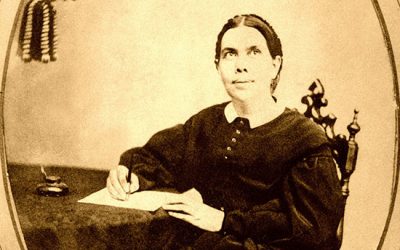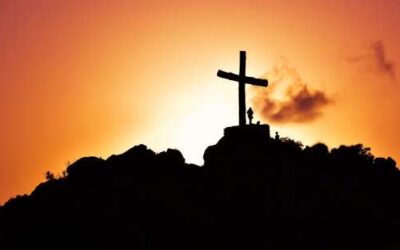When we think about the biblical Creation story, we think of just that: the world being created by the Creator. And while God’s creation of the world is marvelous and miraculous in its own right, it’s about far more than the sudden appearance of plants, animals, and humans.
Creation is one of our greatest examples of God’s beautiful love for us and for this world. God created the earth so He could commune with us more closely, and vice versa. He also created it for us, giving it to us so we could take care of it.
In fact, the earth was meant to be like a temple where we could perpetually dwell in God’s presence. No pain, no suffering. Just a beautiful relationship with God.
Let’s take a trip back in time to explore the account of Creation as we find it in the book of Genesis. We’ll discover what Scripture tells us about things like:
- The purpose of God’s creation
- A literal 7 days of creation
- A special seventh day of rest
- God’s model for life and for eternity
Let’s start with the “why” behind creation.
What was the purpose of God’s Creation?
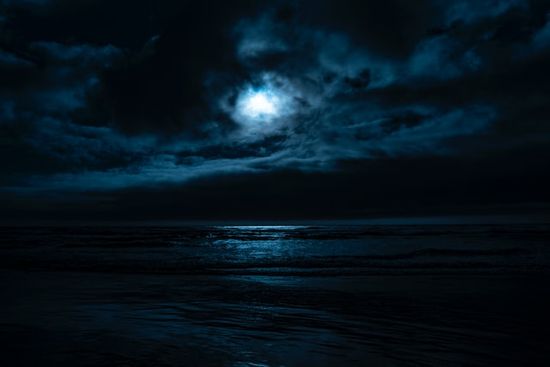
Photo by Kyle Johnson on Unsplash
God created a beautiful, perfect world for us to live in. And He created us in his own image to be able to receive His love, love the people and the world around us, and to freely return that love to Him.
This question can also be asked of a couple who desires to have a child. What is the purpose of having a child? Well, ideally, a couple would want a child to love and nurture a new human being. To bring it happiness and joy. To build an environment that helps them thrive and live a full life.
The same can be said of God and creation.
We can better understand this answer by looking at who God is. What is His character, and what purpose could He have had to create this world and humanity?
The Bible tells us that God is love (1 John 4:8). It also tells us that He is nurturing and creative (Isaiah 49:15, Psalm 104:24).
These aren’t just characteristics of God—this is who God is! God is our ultimate example of love and creativity.
God’s creative power, exemplified in the beauty of Creation, is an expression of His power, His selflessness, and His infinite love.1
While we don’t know the status of other galaxies and worlds in the universe, the Bible tells us that our earth was without form before Creation (Genesis 1:2). There was no organization of time, matter, or anything else.
Over 6 days, God took the dark, formless earth and organized it into something beautiful that all of His creations could share and cultivate.
What an amazing gift: to be given the free choice to love God, love others, and love our earth.
Let’s take a deeper look into each of the 7 days to learn more about what God created.
Were there only seven days of creation in Genesis?
Before diving into the specifics of each day, let’s answer a commonly asked question: did God really create the world in only seven days?
The Bible says that yes, God did create the world in six days, and He made a point to rest on the seventh day in order to reflect upon it. This span of time would be what we know as a week today.
For example, the story of Creation in Genesis, the first book of the Bible, separates the account of each of the days with “and there was evening and there was morning,” marking one day, not an ambiguous span of years (Genesis 1, ESV). Another example is in the Ten Commandments God gave to Moses: “In six days the Lord made the heavens and the earth, the seas and all that is in them, and rested on the seventh day” (Exodus 20:11, NKJV).
When we look at the world and its complexity, it’s hard to imagine it could be created in six days, but God is all-powerful and possesses the amazing ability to command molecules together in an instant!
And the order of creation is important to note, too. In the first three days of creation, God brings order to formlessness and organizes three distinct realms: day and night, the sky and the waters, and the earth. In the last three days of creation, God fills those uninhabited realms with creations to live or dwell there: the sun, moon, and stars, the fish and the birds, and creatures of the land, including humans.
Now let’s explore each day in particular.
Day 1: Day and night

Photo by Casey Horner on Unsplash
On the very first day of Creation, God created light.
With just a simple phrase, “Let there be light,” God filled the darkness with His glorious light and separated the two from each other.
When He saw that He had divided the light from the darkness, He proclaimed that it was good, called the light day and the darkness night (Genesis 1:3-5). This also means that on the first day, God established our conception of time.
Day 2: Sky and seas
On the second day of Creation, the Bible tells us that God created the “firmament” (Genesis 1:6). This isn’t a word we hear or use very often, but essentially, the firmament means the heavens or the sky.
So, the unformed waters from the beginning of the creation story are separated from the sky or the atmosphere (Genesis 1:2; Genesis 6:7-8). God creates two distinct spaces here: the skies and the seas.
Day 3: Dry land
On the third day, God created the dry land and separated it from the waters. The Bible verse Genesis 1:11 tells us that He gathered the land together and said, “Let the earth bring forth grass, the herb that yields seed, and the fruit tree that yields fruit,” and it happened!
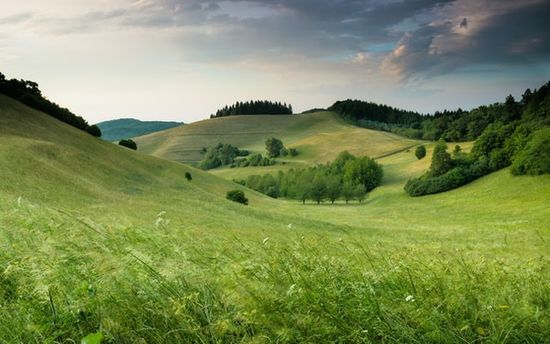
Photo by Claudio Testa on Unsplash
Imagine barren land suddenly sprouting soft green grass, hillsides filled with flowers, and fruit trees loaded with delicious fruit to eat. Sounds like paradise, doesn’t it? God planned it to be a perfect place for His creatures to dwell in.
At the end of the third day, once again, God saw that “it was good” (Genesis 1:12 NKJV).
Day 4: Sun, moon, and stars
On the fourth day, God created the sun, moon, and stars to fill the day and the night with the greater light (sun) and the lesser lights (moon and stars) (Genesis 1:16).
You might be wondering: “Wasn’t there light on the first day?” And the answer is yes. God Himself is a source of light. And while there was light on the first day of Creation, God harnessed that light into the system of the sun, moon, and stars to help us keep track of seasons, days, and years (Genesis 1: 14).
Day 5: Creatures of the sea and birds of the air
Next, God wanted to create living creatures to inhabit the skies and seas He created on the second day. So on day five, He made sea creatures to fill the waters and birds to fill up the skies.
God also commanded these living things to “be fruitful and multiply” (Genesis 1:22 NKJV). God wanted the earth to be abundant with life.
Day 6: Land animals and humans
On the sixth day of creation, God made creatures to dwell on the earth to enjoy the fullness of beauty and sustenance the earth was filled with. Anything that lives on dry land, the creeping things, God created on this day.
God also created humanity on this day.
There’s something different about the way God created humans. Something more special, more intimate.
Instead of just speaking humanity into existence like He did for everything else, God formed us out of the clay of the ground and filled us with the breath of life (Genesis 2:7).
Isn’t it incredible to think that God took the time to shape us and breathe life into us? He cares for us so much that He even made us in the image of God—giving us the ability to create and be creative too (Genesis 1:28)!
God also made humanity to care for the home He created for them: the earth. Just as God nurtured the earth throughout creation, we were to continue to nurture and care for it, reflecting God’s representation, His own image, to all of Creation.
In the book of Psalms, the poet David reflects on this purpose for humanity:
Photo by Ryan Holloway on Unsplash
“What is man that you are mindful of him,
And the son of man that you visit him?
For You have made him a little lower than the angels
And You have crowned him with glory and honor.
You have made him to have dominion over the works of Your hands;
You have put all things under his feet,
All sheep and oxen—
Even the beasts of the field,
The birds of the air,
And the fish of the sea
That pass through the paths of the seas.
O Lord, our Lord
How excellent is Your name in all the earth!”
(Psalm 8: 4-9, NKJV).
What an incredible gift God has given us.
So the sixth day of Creation ended with an earth full of life and beauty. Wouldn’t it make sense for God and His creations to take the time to enjoy it?
Well, that’s exactly what happened next.
Day 7: A day of rest
On the seventh day of creation, there wasn’t any creation happening at all, actually! Still, the seventh day from the Creation account is a special one because on this day, God rested from His work and enjoyed the beauty of the earth and of nature. This day is the climax of all of creation.
The Word of God tells us that, because God rested on this day from His handiwork, He sanctified it, or in other words, He made it holy (Genesis 2:3; Exodus 20:11).
This seventh day is also in the Ten Commandments, and it’s what God calls the Sabbath day (Exodus 20:8-12). It’s a day of peace and rest, not a day of work. It was ordained since the very beginning of the world, and God meant for all His creation to be in communion with Him, especially on this day.
This is also a day to reflect on the magnitude and complexity of God’s creation. To “behold the evidence of God’s wisdom and goodness, that our hearts might be filled with love and reverence for our Maker.”2
But what is the purpose of the seventh-day rest? Did God need to rest?
Why a day of rest?
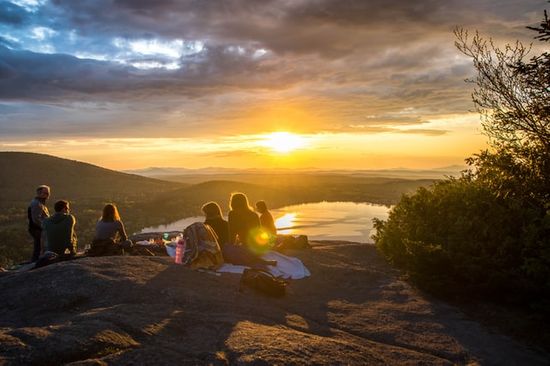
Photo by Arthur Poulin on Unsplash
When we think of a God who can literally speak things into existence, we don’t really think of a being who needs to take a break. And of course, because God is all-powerful, He didn’t need to rest.
However, God gave us a day of rest as a gift. The seventh-day Sabbath was established at Creation as a memorial to God’s power, holiness, and love for us.
What’s more, this wasn’t to be merely a break from activity for the sole purpose of restoring energy. This is rest in the fullest sense, where one switches from producing things to enjoying things. Noticing. Contemplating. Intentionally focusing on the intricacies of life that we so easily miss when we’re stressed out or in a hurry.
Have you noticed that if you go, go, go without stopping, sometimes you can forget what truly matters in life? The Sabbath is an act of resistance against that! God knew we would need rest, so even in the paradise of a sinless, new world, God set aside holy time for rest.
When we keep the Sabbath day, we are celebrating God’s creation and how He paused to take it all in on the seventh day.
The Sabbath is just one of the aspects of the Creation story that serve as our model for life right now and for life in eternity. Let’s talk a bit more about how the model of Creation and the Garden of Eden can add fullness to our lives.
4 things we can learn from Creation about God’s purpose for life and for eternity
In the story of Creation, we find God’s ideal model for life. We can learn from that model to live more fully now, as well as gain a better understanding of what life will be like in Heaven and on our restored planet.
So what can we learn from the Creation story about God’s purpose for humanity and for eternity? God created us to:
- Nurture His creations and allow His creations to nurture us
- Create and be creative
- Cultivate relationships with Him and with each other
- Enter into celebration and rest with Him
Nurture and be nurtured by God’s creations
First of all, we can learn that God made us, not only to nurture His creations, but also to be nurtured by His creations.
When we take care of God’s earth, the earth takes care of us. Everything God created works in relationship, reflecting God’s nature of selfless love throughout His creation.
Create and be creative
We can also learn that God desires for us to both create and be creative. When God made us in His image, He endowed us with His creative ability.
Humanity’s ability to bear and nurture children is one way we can reflect God’s nature (Genesis 9:7). However, our beautiful talents of art, writing, music, science, architecture, etc. are all examples of God’s creative image! We can use these talents to praise God and celebrate His original creation.
Cultivate relationships with Him and others
God’s purpose for creating humanity shows us that God is relational. He desires to love us, and in return, gives us the choice to freely love Him back. We can also see the relational character of God in the way He created Adam and Eve to work together and dwell in the Garden of Eden (Genesis 2:21-22).
Enter into celebration and rest with Him
As we’ve discussed, Sabbath was established at Creation. God created a framework in which we can work and create but also rest and celebrate His creation. And the Sabbath is an opportunity for us to cultivate our relationship with God and enter into His presence.
Creation is all about God’s love for us
The Creation story is marvelous. It simultaneously shows us God’s power, love, holiness, character, and ideal model for our lives now and for eternity.
When we spend time reading about the Creation story, we can more excitedly look forward to a new earth when Jesus comes again and restores us back to the beauty of a sinless world.
But until then, there is plenty to learn about how to live like God’s people in this world. If that sounds like something you’d like to do, you can check our Sabbath page or our Bible studies page.
Related Articles
More Answers
How Does Jesus Christ Help Us Overcome Sin?
You might have heard the phrase somewhere about “gaining victory over sin” through “the power of Jesus Christ” or “through the blood of Jesus,” etc. But what does that mean exactly, and how does it all work…especially if we’re still having to live out our lives in a world that’s still full of sin?
What Are the Beatitudes (And What Do They Mean)?
What Are the Beatitudes (And What Do They Mean)?The Beatitudes, found at the beginning of Jesus’ Sermon on the Mount in the Gospel of Matthew, are Jesus’ kingdom manifesto. They describe the way His kingdom works and what it means to be one of His followers. Even...
What Is the Fruit of the Holy Spirit in the Bible?
When we cultivate our relationship with Jesus, the Holy Spirit gives us traits that help us in our day-to-day activities and interactions. These are the fruit of the Spirit.
Seventh-day Adventist World Population and Demographics
The Adventist Church has more than 22 million members and 100,000 churches worldwide, plus a large system of hospitals, schools, and publishing houses. Learn more about this diverse church.
Bible Translations
Bible Translations—Which Version is “Best”?The most accurate Bible possible would be one that’s printed in its original languages—Hebrew and Greek. But since most of us are not Hebrew or Greek scholars, the next best option is an English Bible translation that most...
What Is a Seventh-day Adventist Camp Meeting?
Although camp meetings didn’t begin with the Seventh-day Adventist Church, they’re as much an Adventist thing as haystacks.
Camp meeting is an extended event for Adventists (and non-Adventists) of all ages to gather and participate in spiritual seminars and activities. During the event, attendees often camp in tents, campers, or RVs.
What Is the Statue in Nebuchadnezzar’s Dream?
Ever had a dream you couldn’t remember? You know it was disturbing, but the details escape you. Ugh, the frustration!
How to Join the Seventh-day Adventist Church
Whether you heard about the Seventh-day Adventist Church through a traveling evangelist, during your online searches, or through a loved one or relative, you might be considering joining yourself.
What Are the Three Angels’ Messages in Revelation 14?
The three angels’ messages in Revelation 14 warn the world to worship God, leave religious confusion, and avoid worship of human traditions instead of God’s commands.
Is the Old Testament Important for Christians Today?
Yes, the Old Testament is important because it kicks off the story that is continued by the New Testament. Without it, we wouldn’t have the vital background to Jesus’ first coming and the other accounts of the New Testament.
The Early Christian Church [Overview]
The Early Christian Church describes the faith community that developed from followers of Jesus after He returned to heaven (Acts 1) in A.D. 31. Their purpose was to be witnesses of the life, death, and resurrection of Jesus and grow their faith community into a worldwide movement.
Individual or Group Bible Study—Which Is Better?
They’re both great, of course! But depending on where you’re at and what your goals are, it’s worth looking into the different benefits of each.
How Do Adventists Do Baby Dedications?
For Christians, dedication ceremonies for babies, also for older children, are an important time for parents and the church. It’s a special part of the worship service when parents present their young children to God and the church family. Both parents, along with the congregation, regard this as a solemn promise to be a Christ-like example to the child.
What You Need to Know About Temptation and How to Resist It
Ever felt like you face the same temptation day after day? The one temptation that always seems to resurface?
It can be frustrating, yes. But be encouraged—being tempted doesn’t mean you have done anything wrong! And even if you give in to temptation, you are never too imperfect to come before God.
All About the 2300-Day Prophecy and the Investigative Judgment
This page will explain what the 2300-day prophecy is about. We’ll especially be looking at what events marked its fulfillment and what it has to do with the Investigative Judgment.
Was Ellen G. White Really a Prophet?
If you look at what Scripture provides as tests for a true prophet, Ellen White meets all the criteria.
Do Adventists Celebrate Communion and Foot Washing?
Like many Christian denominations, Adventists regularly participate in communion, also referred to as the “Lord’s Supper” or the “Last Supper.” They also practice foot washing (John 13:1-20), or the “ordinance of humility,” during the service—which isn’t as common.
Faith and Works—Do Both Matter in the Christian Life?
In so many religions all throughout time, individuals work toward enlightenment, salvation, or the favor of a deity. People are taught subtly—or not so subtly—that if you only do enough good deeds, you’ll be worthy/ascended/redeemed/approved, etc.
What is the Concept of “Present Truth” and Why is it Important?
Present truth is the principle that certain biblical truths are relevant to God’s people at specific times in history. God sends the Holy Spirit to reveal truths that help us better understand how to interpret and apply His Word in a present moment.
What is the Spirit of Prophecy (Books 1–4) by Ellen G. White?
Applying biblical prophecy to history, recent events, and especially the future, can be a daunting task. Even a little scary for some. But even so, we can’t help but want to know more. We want to be prepared—to feel like we know how to weather the storm.
Do Seventh-day Adventists Celebrate Easter
Yes, many Seventh-day Adventists do celebrate Easter.
Ellen G. White’s Counsel on Christian Education
Ellen White, a co-founder of the Seventh-day Adventist Church, saw that the U.S. educational system during her time was lacking. And as part of her life of ministry, she sought out practical ways to be better stewards of our minds, bodies, and the lives we’re given.
What Does Ellen White Say About Prayer?
Have you ever had a burden you just had to tell someone, but you were afraid of being judged if you did? Ellen G. White, an important figure in the Seventh-day Adventist Church and a prolific writer, described prayer as talking to God in a personal way—He’s the friend we can tell everything to.
Were All Ellen White’s Visions About the Future?
While the visions God gave Ellen White were often about the distant future or last-day events, she had many others that addressed different topics. They may not be discussed as much as her visions about the Second Coming or the End Times, but they tackled some timely topics for her day.
What Did Ellen White Say About End-Time Prophecy?
We can read in Scripture about the series of events and signs that lead up to the second coming of Jesus Christ. And it sounds pretty intense, to say the least. The symbolic nature of the language of prophecy also can make things tricky to understand at first.
Does the Adventist Church Have Youth Ministry Programs?
The Seventh-day Adventist Church has been organizing and operating youth ministry programs since 1879.
In our opinion, youth ministry is one of the most important ministries a church can have.
Were All Ellen White’s Books Inspired?
As the most translated female author in the world, Ellen White wrote numerous books, articles, pamphlets, and more. These writings focused on developing Christian character, emphasizing Bible truth, practical tips for living well and staying healthy, and discussing effective methods of delivering the gospel message to the world.
Do Adventists Celebrate Birthdays?
Yes, most Seventh-day Adventists do celebrate birthdays because we see them as excellent reminders of the life God has blessed us with. And we celebrate them the same way everyone else does—with friends, family, presents, and a special meal.
The Ultimate Guide to Personal Bible Study
Ever felt that studying the Bible is challenging, and you’re just not sure where to start? Or looking for fresh ideas to improve your current Bible study habits? We’ve got you covered with simple techniques and plans to improve your Bible study experience.
Didn’t find your answer? Ask us!
We understand your concern of having questions but not knowing who to ask—we’ve felt it ourselves. When you’re ready to learn more about Adventists, send us a question! We know a thing or two about Adventists.

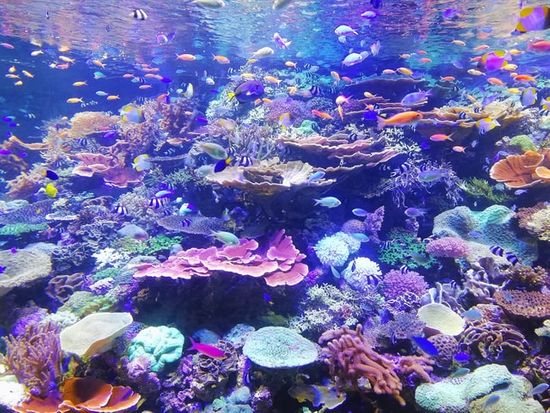


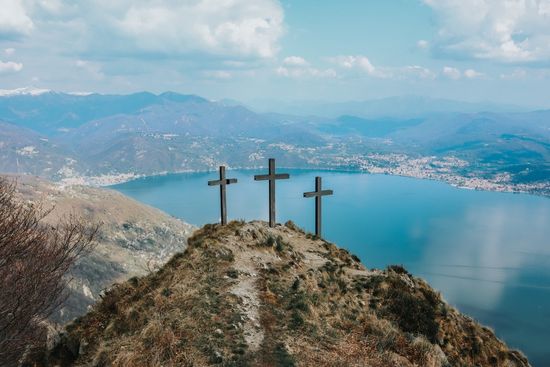



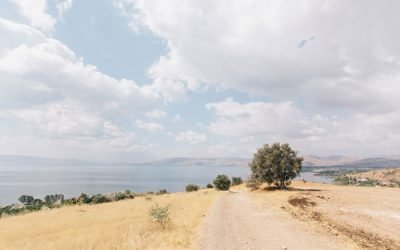



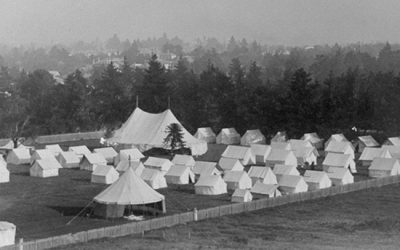
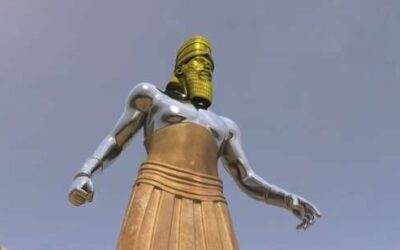
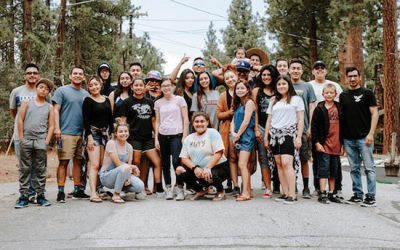


![The Early Christian Church [Overview]](https://www.askanadventistfriend.com/wp-content/uploads/2023/01/old-temple-400x250.jpg)








